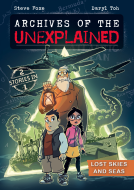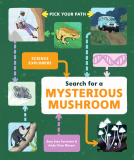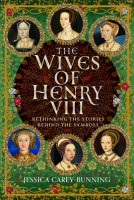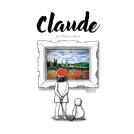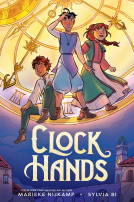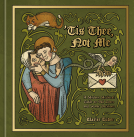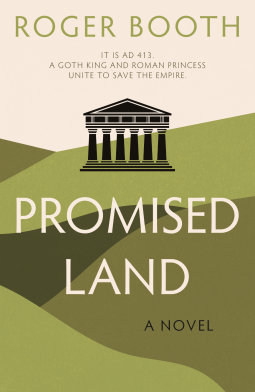
Promised Land
by Roger Booth
This title was previously available on NetGalley and is now archived.
Send NetGalley books directly to your Kindle or Kindle app
1
To read on a Kindle or Kindle app, please add kindle@netgalley.com as an approved email address to receive files in your Amazon account. Click here for step-by-step instructions.
2
Also find your Kindle email address within your Amazon account, and enter it here.
Pub Date Dec 22 2020 | Archive Date Feb 01 2021
Troubador Publishing Ltd. | Matador
Talking about this book? Use #PromisedLand #NetGalley. More hashtag tips!
Description
Promised Land opens in AD 413, centred on the Roman town of Burdigala (Bordeaux). Led by their King Athaulf, the town is occupied by the Visigoths who, for almost four decades, have travelled the Empire seeking a place to settle. Too weak to defeat the Roman Empire but too strong to be defeated themselves, the Visigoths under their previous king, Alaric, had briefly even captured Rome without resolving the stalemate over their future.
In Rome the Visigoths captured the Princess Galla Placidia, half-sister to the Emperor Honorius. She has travelled with them as hostage ever since. In Burdigala there begins a relationship between Roman Princess and Visigoth King based on a heady cocktail of romance, political calculation and genuine idealism culminating in marriage and the birth of a son. Honorius has no children. King and Princess believe their personal union, and in time their son, will unite Romans and Visigoths so changing the then world – and, quite possibly, the world in which we live today.
Except the world is not so easily changed. A Princess seldom lacks for competing suitors. And many are the men who would be King or have their son become Roman Emperor.
Promised Land is a novel. The Dark Ages already throw a long shadow. Invention is necessary sometimes for the book to work and sometimes because that darkness swallowed the facts. For all that, the tale of Athaulf and Galla Placidia is a tale deserving to be told.
Available Editions
| EDITION | Ebook |
| ISBN | 9781800468771 |
| PRICE | $6.99 (USD) |
| PAGES | 200 |
Average rating from 4 members
Featured Reviews
 Kara R, Reviewer
Kara R, Reviewer
The 5th century tends to be overlooked - people focus on either the grand infrastructure of games and armies of the glorious Roman Empire in the 1st - 4th centuries, or they get into the gritty Game-of-Thrones and Vikings-esque violence of the Dark Ages in the 6th-12th centuries.
But here Booth takes a look at the transition point when everyone is neither one thing nor the other. All of the groups in this story are Christians - they may quibble over different versions on the Bible and definitions of the Holy Trinity, because nothing changes - but the paganism of the prior centuries is already gone. There are churches everywhere, but the Roman Empire is still trying to hold together with the same fashions, titles, ands structure - but without the military infrastructure. They longer have the deep bench to hold the empire, and it shows. Meanwhile, the outside forces who, on paper, should be able to overtake the weakened empire, are weakening themselves as they themselves are fracturing into smaller and smaller groups.
Throughout the book we see the once humongous Roman Empire splintering into the many, many small tribes, groups, factions, city-states and kingdoms that will form medieval Europe. It wasn't just that they no longer were building roads and colosseums, it was that people stopped believing in the idea of a federal-style government and instead it became free-wheeling libertarianism, with all the piracy and fire that entails.
We see this destruction play out in real time with Athaulf, King of the Visagoths, and Galla Placidia, Princess of the Roman Empire, and how they hope and try to stem an oncoming tide as politics undergo a radical change.
A great book that takes a close look an at overlooked time period.
The premise of this book sounded wonderful and instantly drew my attention to it. The writing was beautiful, especially if you’re into Gothic writing and the Roman Empire. A unique story, a slow burn, a Promised Land.
 Keith C, Educator
Keith C, Educator
‘We offered you silver, you chose steel.’
I knew on reading the first sentence of this novel, that it was going to be good. In fact, I think it is one of the best historical novels I have ever read. I have enjoyed some excellent fiction set in the twilight period of the Roman Empire, Eagle in the Snow by Wallace Breem, The Death of Attila by Cecelia Holland, Three Six Seven by Peter Vansittart, but Promised Land stands equal with any of them.
The focus is on the Visigoth nation in the years following Alaric’s sack of Rome in 410 AD. Refugees from their homeland, given grudging hospitality by the Roman Empire, used and abused by their Roman hosts, who are too weak to remove them and too strong to be defeated by them, they wander the length and breadth of the Empire seeking land in which they can settle and call home.
One of the central themes of the novel is that of identity. The Romans hope the invaders will eventually become Romanised; the Goths are determined to preserve their own sense of nationhood. Some see value in a union of the two nations, a Rome rejuvenated by Gothic blood. Among these are the Goth king, Athaulf, and his captive, the Roman princess, Galla Placidia, who marry in the hope that their union will create a new dawn for both nations. And this might have happened but for unfortunate circumstances.
The focus of the tale is on the Visigoths and especially on their chieftains. Each is carefully drawn and their degrees of respect for, or hatred of the Romans and their empire are skilfully explored. Apart from Athaulf, there are Herfrig, Latin speaking and Romanophile, the treacherous Sergeric, displaying all the worst characteristics of the Roman enemy, the young Theoderic, prepared to work with the Romans while preserving his people, and above all the pragmatic warrior, Wallia, who accepts the crown with reluctance and eventually makes the deal with Rome which offers his people their promised land. Then, too, there is the daughter of Alaric, the intelligent and resourceful Rohilde, friend of Galla Placidia, but enemy of Rome.
The Romans play a less central role in the story, but they are important too: the cunning general Constantius, the brave soldier Lucellus who wins the respect of the Goths, the shrewd spy Euplotius and others.
This novel is a modest length but is epic in scope: violent battles, Homeric duels, the wanderings of the Visigoth nation from Gaul to Spain, attempted crossing into Africa and back to Gaul; storms at sea, famine, siege, betrayal within and treachery from the enemy – all feature in a series of powerful scenes and vignettes. But this is a reflective, humane novel, sympathetic to the plight of the Goths, and of the Romans, aware too of their many failings. The exploration of prejudice and misunderstanding between nations has timeless application. Promised Land – what a great title, in both its Biblical connotations, and what was promised to the Goths by Rome, but delayed for so long.
Readers who liked this book also liked:
Steve Foxe
Children's Fiction, Comics, Graphic Novels, Manga, Middle Grade
Amy Seto Forrester; Andy Chou Musser
Children's Fiction, Comics, Graphic Novels, Manga, Science
Sarah Becan
Comics, Graphic Novels, Manga, Cooking, Food & Wine, Nonfiction (Adult)


